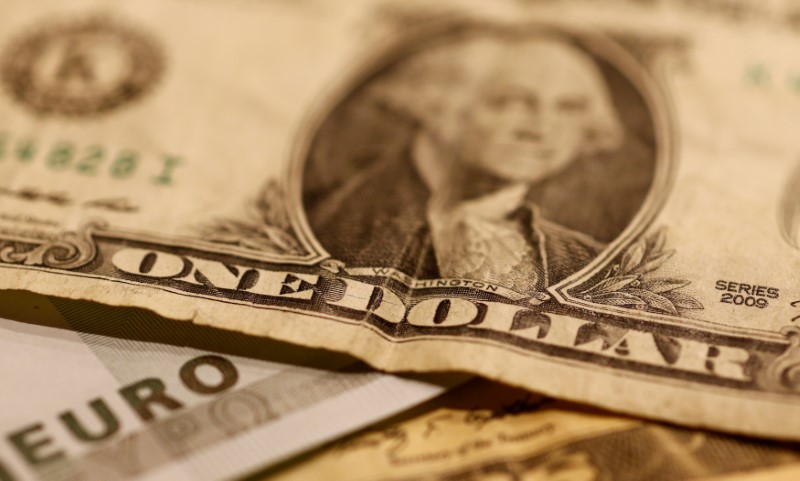By Jemima Kelly
LONDON (Reuters) - The dollar slipped against most major currencies on Wednesday, weighed down by worries over possible delays to Donald Trump's tax reform plan and evidence of the U.S. president's waning popularity.
The greenback had risen to a 3-1/2-month high against a basket of currencies (DXY) in recent weeks, helped by expectations that Trump's administration would deliver tax cuts, after the U.S. Senate approved a budget blueprint for such reforms.
But the Washington Post, citing unidentified sources, reported on Tuesday that Senate Republican leaders are considering a one-year delay in the implementation of a major corporate tax cut to comply with Senate rules.
Any potential delay in the implementation of tax cuts, or the possibility of proposed reforms being watered down, would tend to work against the U.S. currency, analysts said.
"The initial phases of discussions within the House have brought up a lot of divisions and problems, so the House version itself is going to change before we’ve even got wind of what the Senate version is going to be," said MUFG's European head of global markets research in London, Derek Halpenny.
"If the story is true that they're considering a delay of one year to the corporate tax cut, those big differences will need to be sorted, so we continue to be dubious on that proceeding."
Halpenny added that a Wall Street Journal poll on Tuesday showing Trump's approval rating falling sharply, even in counties that had voted for him, was adding to a picture of an increasingly unpopular president, with that unpopularity potentially emboldening members of Congress to oppose his plans.
The dollar was down 0.1 percent against its basket at 94.797 and down 0.2 percent against the euro, which was trading at $1.1606
The currency has slipped steadily over the past few weeks, pressured by the divergence in the monetary policies of the European Central Bank and the U.S. Federal Reserve.
"The ECB is likely to be generally pleased, as it has managed to reduce its asset purchasing program further without this causing major distortions on the market – i.e. a strong rise in yields and euro exchange rates,"
"With the exception of a reduced monthly purchasing volume they did not accept any signal that the purchasing program might end imminently," wrote Commerzbank (DE:CBKG) analysts in a note to clients.
"Until an end of the purchasing program is in sight the first rate hike seems an increasingly distant prospect. Bad news for euro bulls," they added.

The dollar was also down 0.2 percent at 113.75 yen